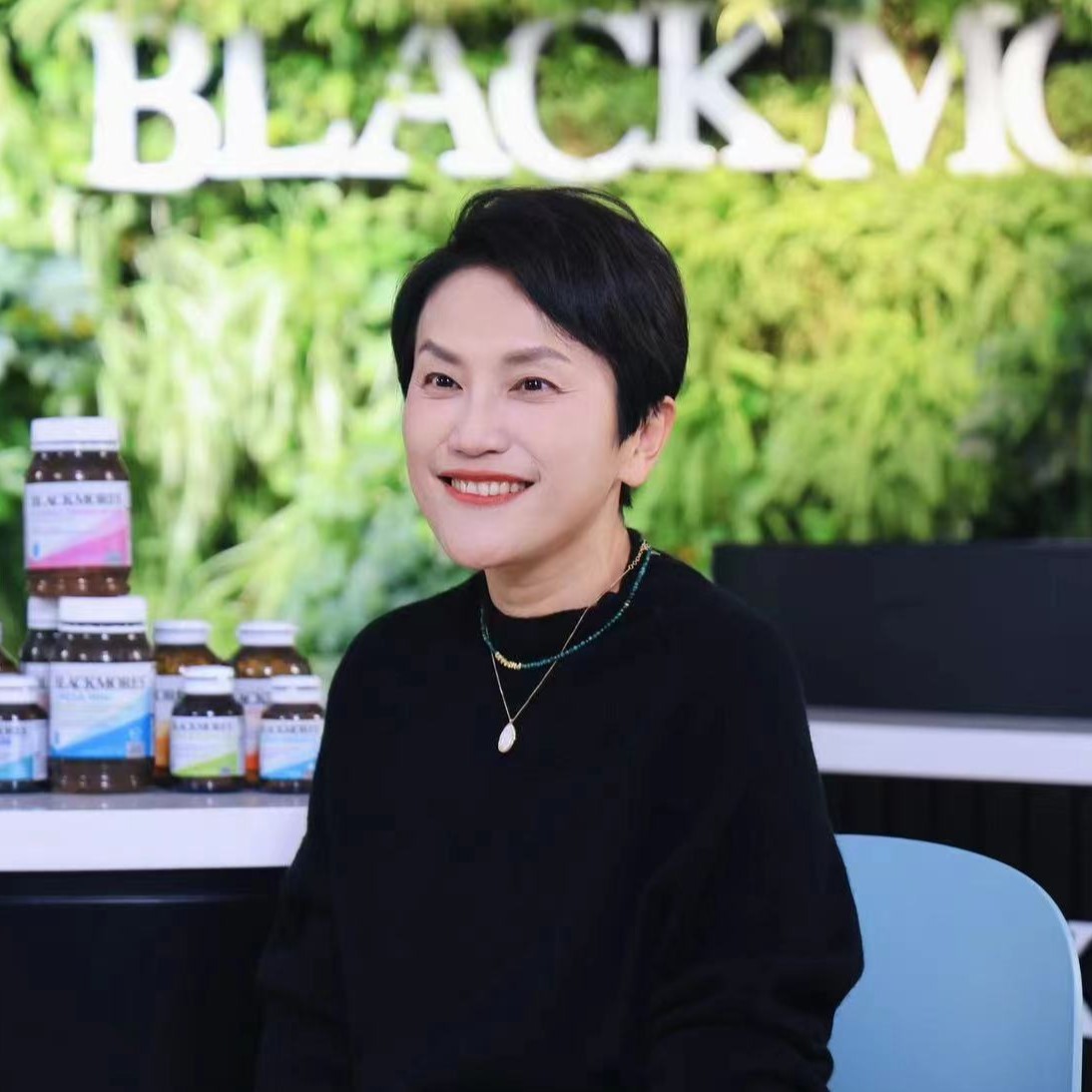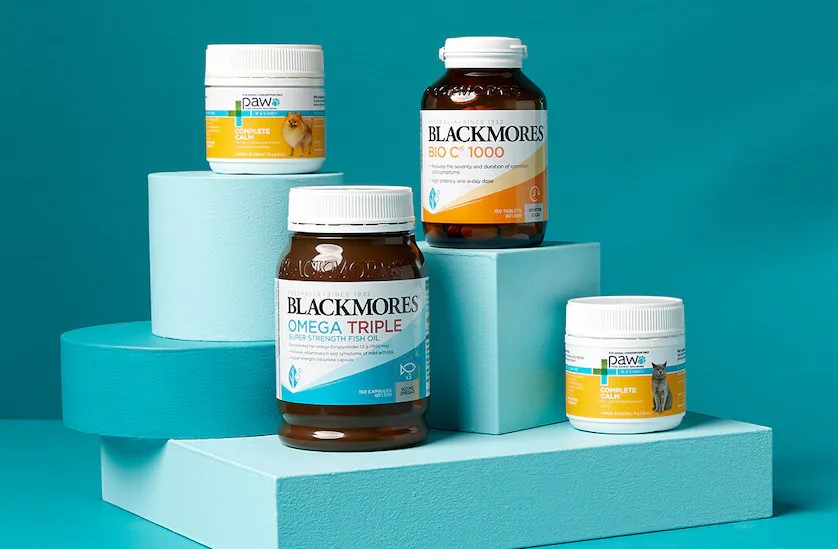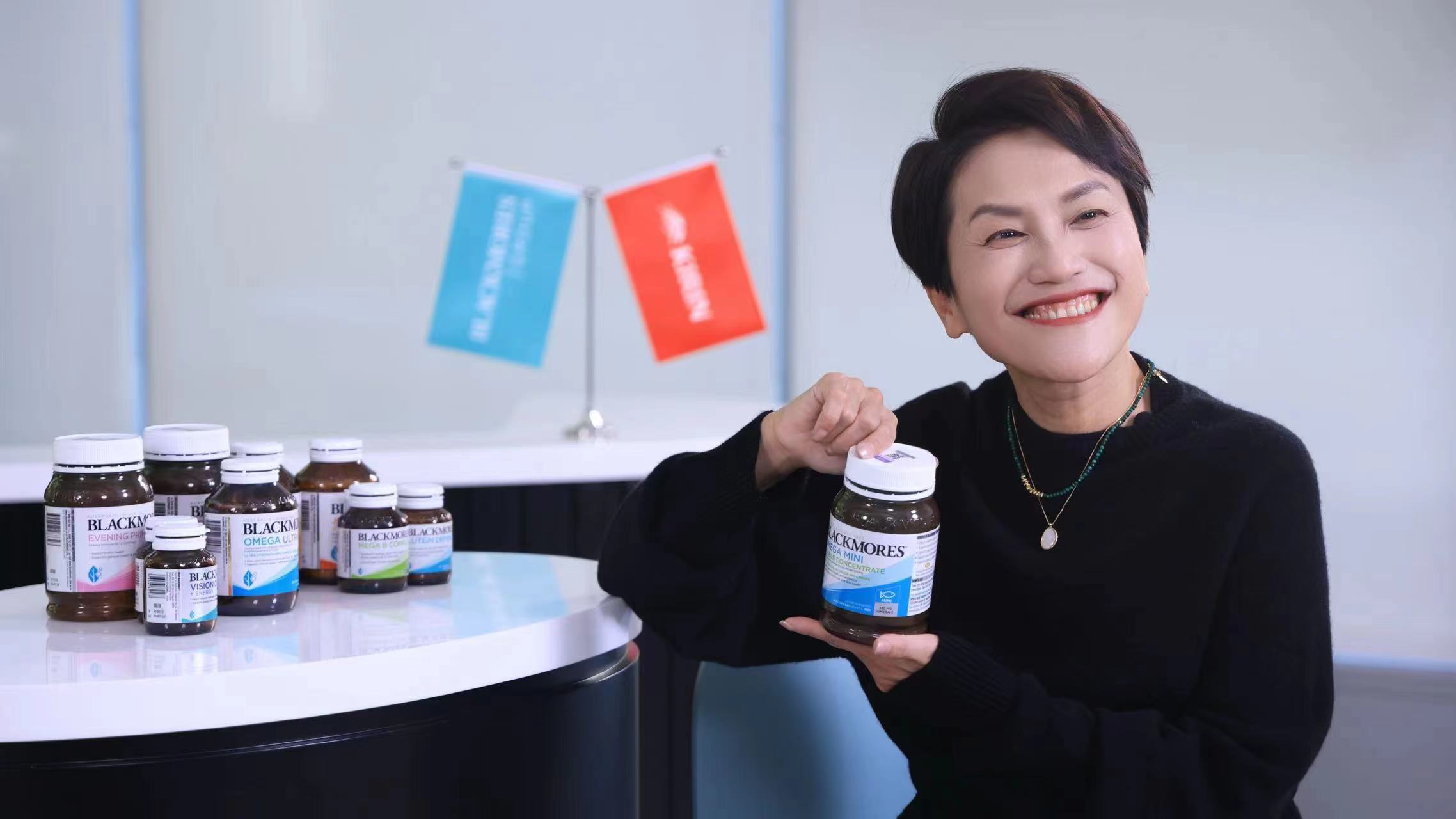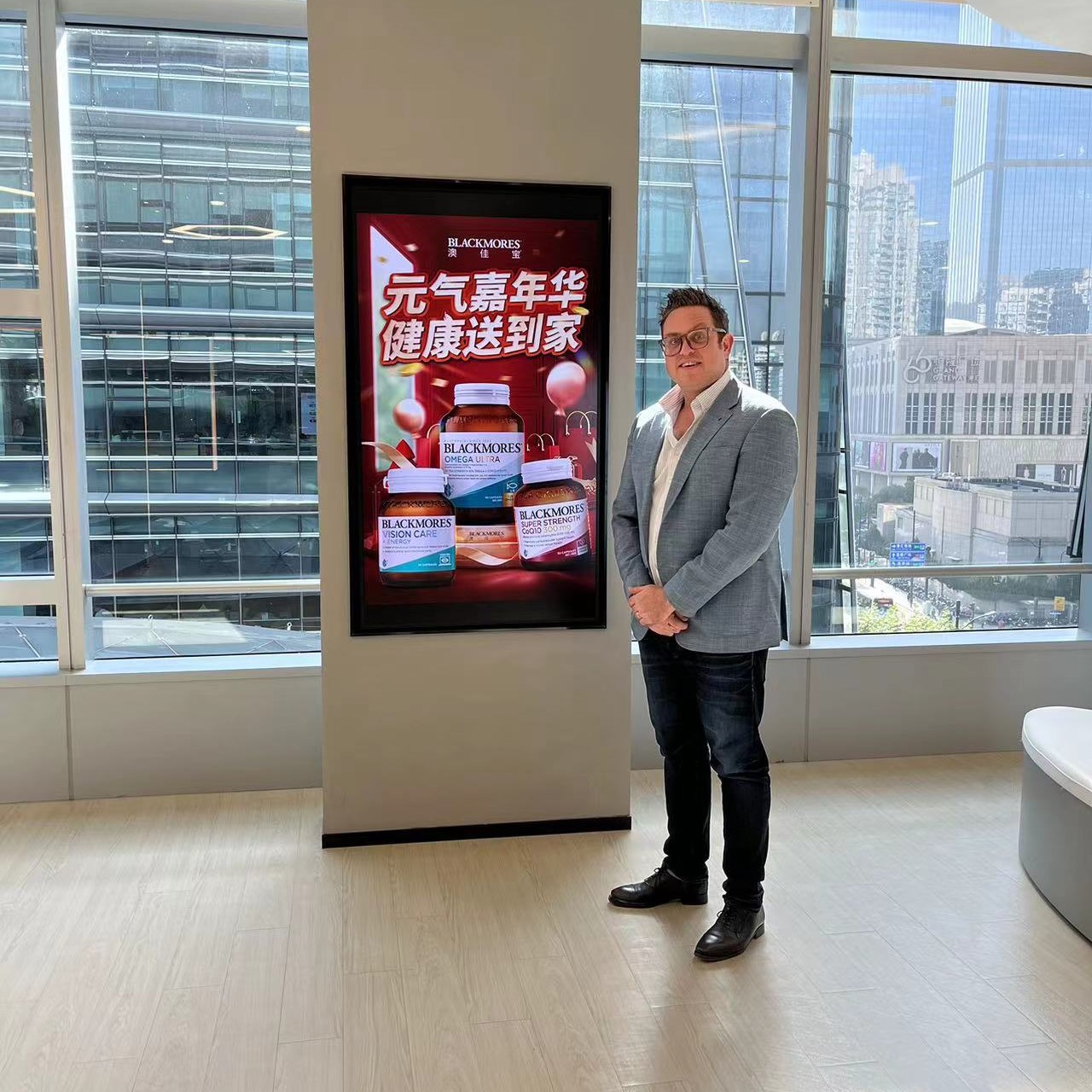Powered by WEBFOSS
The FMCG Insider: 5 Minutes with Kitty Liu from Blackmores
The FMCG Insider is a look inside China's Consumer Industry through the eyes of local and foreign experts* as interviewed and summarized by Kourosh Asghari, VP of Executive Search firm CGP Group.
This is our January 2024 issue of "The FMCG Insider" featuring a conversation with Kitty Liu, the Managing Director of Blackmores China.

Kitty Liu
Managing Director of Blackmores China
Leading Blackmores China – reporting to Global CEO
Prior to joining Blackmore's, Kitty held senior leadership roles in marketing and general management with Unilever, Yum!, Mead Johnson and General Mills

Kourosh Asghari
Vice President, Consumer, CGP Group
New Zealander living in Shanghai since 2014
10+ years of recruitment experience in FMCG sector
Interviewed and summarized by Kourosh Asghari
Kitty and I caught up in the recently renovated Blackmores Shanghai office – an open modern space with plenty of light where you are welcomed at the entrance by the Blackmores logo nestled amongst a natural arrangement of real plants!
Kourosh: Could you tell us a bit about the consumer healthcare industry and particularly Blackmores China?
Kitty:
It's a very interesting time – with news such as price deflation earlier in the year, we are now seeing a recovery in consumer confidence but those who had expected a quick rebound have been disappointed.
In China, big challenges and opportunities always coexist. There has been a lot of investment and growth in the category and brands who insist on consistent investment in brands and innovation are winning. We hear many concerns about the challenges with the middle class but in reality, shoppers are still open for premium and innovative products. It's just that they're smart and need to see the value in the products for prices to be justified. You have to be very competitive to sustain prices.
The market itself has accelerated with COVID. There has been a greater emphasis on health and consumers in the VMS (Vitamin, Mineral & Supplements) category are typically younger in China than other markets than Australia and US. In China, young people work so hard so they need to be mindful of taking care of their health and prevention of illness!
We also see a number of big local and MNC pharma and FMCG companies seeing long term opportunities in the category which has driven M&A and investment in China. But it's hyper competitive – even where you have very large players, the concentration of market share is low – so it depends on a company's commitment, their smarts on consumer insights – there needs to be foresight and a strategy which you stick to. That's why we were really glad recently to have Kirin invest in us – they take a long-term perspective and you can also see that within their own people – there are 80 people in their team who are foreigners but speak fluent Chinese!
Kourosh: I was just reading a market report before coming to meet you, Blackmores China managed to grow category share in a growing category. Your boss must be happy! What were some strategies and tactics you put in place to do that?
Kitty:
First thing to look at is what opportunities to prioritize. There are there simply too many potential opportunities to chase and so having a robust and clear focus is important. For us we prioritize core platforms where we can take a category leadership position and even pull in new consumers into the category. For example, in the fish oil category we deep dive for very strong consumer and shopper insights for both short- and long-term business development.
Kourosh: When I speak to and look at the company organization of a number of international companies with a large focus on China, I see a lack of representation from China on the leadership on the board and executive teams. Blackmores is one of the few companies where you as GM China, are directly reporting into the Global CEO. How does that dynamic help you to have a seat at the table?
Kitty:
This really helps with communication and trust. To win in China, you need more than just the China team – you need the support of the whole organization. So this really allows us to amplify the influence of China on group strategy. If you take this year as an example – Alastair (Group CEO) was one of the first batch of leaders to come to China and he's taken his whole leadership team and people from many HQ teams this year. So we have developed a lot of friendships and gathered a lot of support through this – so the structure helps but also being part of a team/company that has a genuine interest in listening and learning.
Kourosh:How does Blackmores increase collaboration and communication between China and HQ?
Kitty:
The current structure helps a lot. Before 2020, when Blackmores Chinese Mainland reported to Hong Kong, which reported to Singapore which reported to global – there were efficiency costs in communication. Besides loss of speed in communication, the messages get discounted, changed and diluted.

Kourosh: Does having capability in Australian HQ dedicated to the China business or at least very familiar with China help improve the communication efficiency?
Kitty:
Absolutely. But it's not easy. We really need to conscientiously develop our human capital across the organization. A challenge is attracting people from HQ in Australia to move to China. The stage of people's lives are very different. In China, the average age of the team is around 30 years old, whereas in Australia it's different and it's difficult to manage that smooth and consistent flow of mid/senior level talent around the organization. We see it easier with younger team members – they're more mobile and open minded. At the same time, we still do have a great opportunity in Australia with a large number of Chinese students and population with knowledge and connections back to the China market.
Kourosh: We see and hear of made in China being a point of pride now for consumers and the foreign provenance of products having less of a competitive advantage than in the past. Have you seen any impact to the Blackmores brand?
Kitty:
We've seen a lot of research on this – the provenance of products still matters. Australia is still seen as the most trusted source for natural, green, quality products. This is not about natural pride – it's about having natural green quality products that people are looking for. As China continues to develop, you see more competition and the question of value being critical i.e. quality to price being considered. Sometimes growth is not hard but sustainable and profitable growth is the challenge which is what some local start-ups for example can find challenging. We see many new brands coming and going – a frequent lifecycle is 3 years. It's not a question of simply localizing production – you first need to answer the question about what your consumers want and where is your competitive value add, these are longer term strategic questions.
Kourosh: Consumer Health has undergone a number of major channel shifts which must have impacted Blackmores over the past 6 years – Daigou, CBEC traditional, eCommerce, social commerce etc. How do you keep track and manage these channels? What's your priority channels right now?
Kitty:
Can you know the future? No - but you know in China that there will be change. What made you successful in the past 5 years could be your barrier in the future if you are not adaptable. Companies need to compare where the growth of the past has come from and where the future will come from.
It's critical to look at the consumer decision journey – look at what is sustainable. In the past Daigou was a money printer for many companies in Australia. But then we saw the emergence of CBEC and if we didn't have this channel ready during the pandemic years it would have been a major issue. But is CBEC a safe haven? Of course, but can I share the detail of where we are going… no (Kitty shares me her trademark grin).
Social commerce? Yes it's important and yes it's also growing fast. Is it profitable? Yes, we wouldn't do anything not profitable because if it's not profitable it's not sustainable. We have third parties and trade partners who are professionals and have the capability. But it's important for employees to get involved and stay in tune and therefore we have our own area for livestreaming in the office. I encourage our whole team to get involved as it's great for their personal and professional development and they also use their social network. I also encourage them to be creative – focus on getting natural traffic. We don't want to be paying for traffic!

Kourosh: How about brand and digital marketing?
Kitty:
In China VMS category even just in CBEC there are more than 2,000 brands and every year there are more than 100 new ones coming in. That's why we believe in the power of a brand to raise awareness, become a well loved and trusted brand and ultimately be a sustainable brand. All the live streaming and latest fancy tools and channels - they're the channel and the tools. It's not just about using these contemporary tools, you need to see and understand what is your brand and invest in it. Consumers have a short memory and if you are not memorable enough and sustainable – you will fall into the 3-year lifecycle I mentioned earlier. For example, Blackmores has been committed to product safety and high quality for over 90 years, continuously investing resources and time in R&D and consumer education. This dedication has positioned Blackmores as a professional and trustworthy brand, aligning with government and related stakeholders and their policies and procedures. For consumers, you don't want messages to be too medically complex, but healthcare still needs a lot of science behind it.
Kourosh: As an FMCG GM, what are the key qualities or attributes you believe are essential for effective leadership in this fast-paced and competitive sector?
Kitty:
Transformation - everyone has to have this skill set. With rapid channel shifts, consumer demands, hyper competition on value – no matter you come from marketing, finance, sales, supply chain, HR etc, do you have the transformation skill set? How do you read this market, design your strategy, develop short and long term goals and plan for scenarios. Another quality is collaboration with global – this is critical to build rapport and be able to influence the business agenda.
Kourosh: Some of the biggest challenges by GMs for foreign companies in China is the engagement with stakeholders in global or regional HQ. Do you have any tips to share to your peers or aspiring GM's of MNC's in China?
Kitty:
I don't like hearing China is different. I like to say China is the future and when you invest in China now – it's going to pay off for the rest of the business. Whether it’s for channels, marketing strategies or products – China now is relevant for the group in the future.
Leadership in China needs to clearly articulate the vision and the path to reach that – i.e. what's the exact support you need? Sometimes I see leaders just moving the monkey on their back to others – this never works and it's never good to only be knocking on the door when you need help. Leaders need to work on transparency, trust and defining the exact support you need.

Please reach out to me to talk more about the FMCG industry and especially if you are looking to hire talent to grow your business.
Contact Kourosh by Email: kasghari@cgptalent.com
Note: The above interview transcript features a conversation with an individual who is not representing their company. It is important to note that the views expressed during this interview are solely those of the individual and do not necessarily reflect the opinions, policies, or beliefs of their employer or any affiliated organization. The purpose of this interview is to provide insights and perspectives from a personal standpoint rather than as an official representative of a particular company.








 京公网安备 11010502051067号
京公网安备 11010502051067号